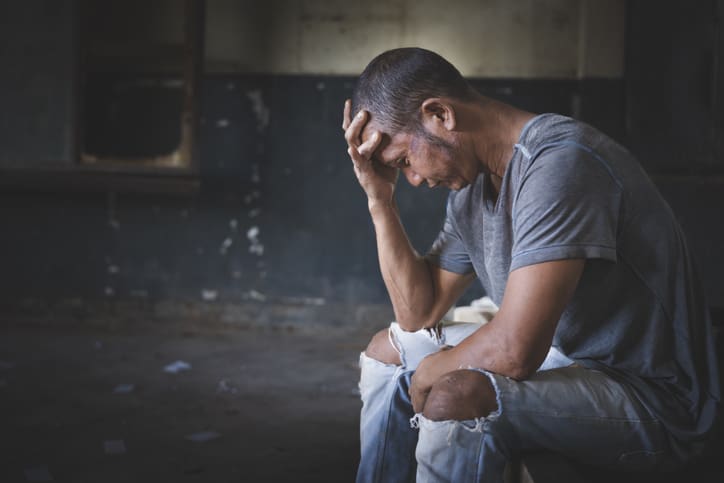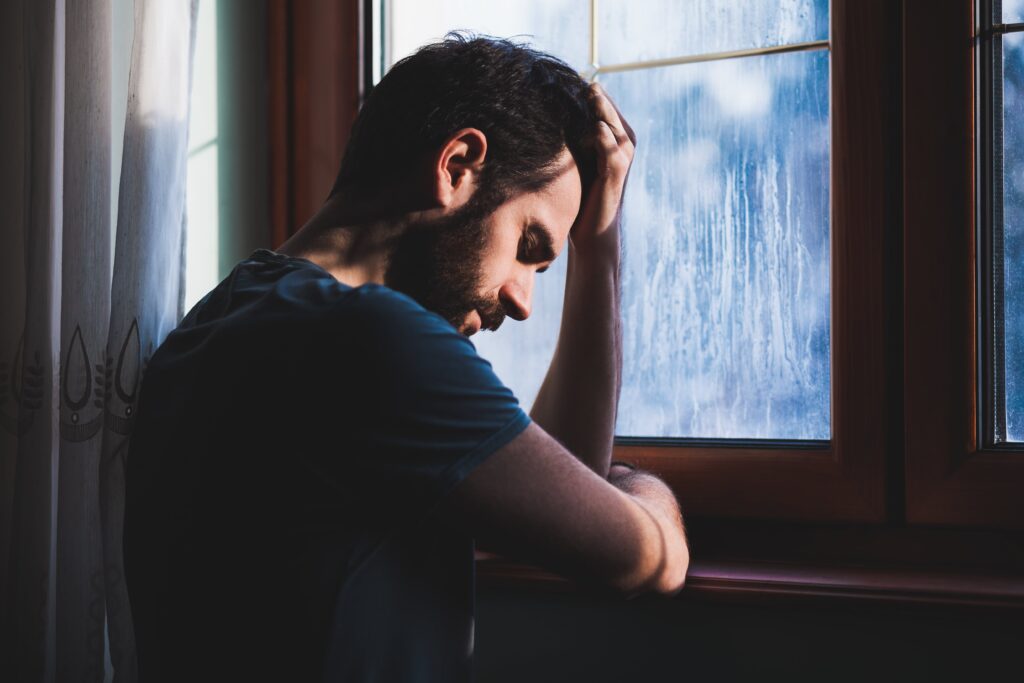
Understanding Heroin and Its Dangers
Heroin is an illegal, highly addictive opioid derived from morphine. Morphine is a natural substance that’s extracted from the seed pods of opium poppy plants.
It’s classified as a Schedule I drug under the Controlled Substances Act. This designation means it has no accepted medical use and also carries a high potential for abuse and addiction.
Heroin typically comes in the form of a white or brown powder. It can also be a black sticky substance known as black tar heroin. It can be injected, snorted, or smoked—all of which deliver rapid, intense effects.
Heroin abuse triggers a rush of euphoria by binding to the brain’s opioid receptors, especially those involved in pain, pleasure, and reward. This release of dopamine causes a surge of well-being that reinforces repeated use.
Over time, the brain starts depending on heroin to function, leading to intense cravings and withdrawal symptoms when the drug isn’t present.
The risk of heroin addiction increases with repeated use, but even occasional use can quickly escalate to physical and psychological dependence. Contributing factors include a personal or family history of substance abuse, early exposure to opioids (often via prescription painkillers), and co-occurring mental health disorders such as depression or PTSD.
Heroin also poses serious health threats. Long-term use can damage the heart, lungs, liver, and brain.
It brings a high risk of infectious diseases from needle use and is often cut with other dangerous substances, increasing the overdose and death.
Understanding the risks is the first step toward seeking help and choosing recovery.
Signs and Symptoms of Heroin Addiction
Recognizing the signs of heroin addiction can be the critical first step in saving a life.
Heroin dependence doesn’t always look the same for everyone, but the drug’s effects on the brain and body are powerful, and the symptoms often become increasingly noticeable over time.
Physical signs of heroin addiction may include:
- Constricted (pinpoint) pupils
- Drowsiness or “nodding off”
- Sudden weight loss
- Itching, flushed skin
- Slurred speech and slowed breathing
- Frequent nosebleeds (if snorted) or visible track marks (if injected)
Behavioral changes are also common and can signal heroin dependence. These may include:
- Drastic shifts in personality or mood
- Social withdrawal and isolation
- Neglecting responsibilities at work, school, or home
- Secretive behavior or lying
- Financial problems or theft to support drug use
Psychological symptoms may involve:
- Depression or anxiety
- Intense cravings and obsessive thoughts about using
- Impaired judgment or decision-making
- Memory issues or confusion
If you’re wondering whether someone you care about is showing signs of heroin dependence, trust your instincts. Substance use can spiral quickly, especially with a drug as potent and dangerous as heroin.

The Dangers of Heroin Overdose
Overdosing is one of the most serious and immediate risks of heroin addiction. Heroin is a potent opioid, and when abused, even a small miscalculation in dosage can quickly lead to respiratory depression, coma, or death.
The growing presence of fentanyl—a synthetic opioid up to 50 times stronger than heroin—makes the risk even greater.
Many people don’t realize that street heroin is often laced with fentanyl, significantly increasing the danger of accidental overdose.
Signs of a heroin overdose include:
- Shallow or stopped breathing
- Blue or gray lips and fingertips
- Pinpoint pupils
- Unconsciousness or inability to wake
- Limp body and slow heartbeat
- Choking or gurgling sounds
Having naloxone (Narcan) available can reverse the effects of an overdose and save a life, but it must be administered quickly.
After any overdose, immediate medical attention is crucial, even if the person wakes up.
If you or someone you love has survived an overdose or is at risk due to heroin abuse, it’s time to consider professional help. Tulip Hill Recovery in Murfreesboro offers expert, nonjudgmental care to help individuals safely recover from heroin addiction and avoid future harm.

Heroin Withdrawal and Detox
Breaking free from heroin dependence starts with detox, but it’s not easy to do alone.
Heroin withdrawal is physically and emotionally intense, which is why supervised heroin detox is a safer, more effective option than quitting cold turkey.
- Nausea, vomiting, and diarrhea
- Muscle and bone pain
- Insomnia
- Cold flashes and goosebumps
- Restlessness and anxiety
- Intense cravings
Withdrawal usually starts within 6 to 12 hours of the last dose, peaks around days 2–3, and can last a week or longer. In some cases, psychological symptoms like depression or cravings can persist for weeks.
Attempting to detox without medical help can increase the risk of relapse or dangerous complications like dehydration or heart irregularities.
At Tulip Hill Recovery, our heroin detox program provides 24/7 clinical support, medication to ease symptoms, and a compassionate team that ensures your safety and comfort from start to finish.
Detox is the first step in treatment for heroin addiction, and we’ll help guide you every step of the way.
Heroin Detox Services at Tulip Hill Recovery
At Tulip Hill Recovery, we understand that beginning recovery from heroin addiction starts with a safe and effective detox.
What to Expect During Heroin Detox:
Detox begins with a full assessment to evaluate your substance use history, mental health, and overall physical condition.
From there, a customized detox plan is developed to help with your safety and comfort as your body clears heroin from its system.
Throughout detox, our clinical team monitors your vital signs, hydration levels, and symptoms to intervene when necessary.
Comfort Medications and Monitoring:
We utilize evidence-based treatments for heroin withdrawal, including FDA-approved medications such as buprenorphine or other comfort meds to ease symptoms like nausea, anxiety, insomnia, and muscle aches.
These help stabilize the body and reduce cravings, which then makes it easier to stay committed to recovery.
Detox Is Only the First Step:
While heroin detox helps clear the drug from your body, it does not address the emotional, behavioral, or psychological patterns that contribute to addiction.
That’s why detox is just the beginning.
Tulip Hill provides seamless transition into our full range of treatment options for heroin, including outpatient, IOP, PHP, and therapy programs that support long-term heroin addiction recovery.
Taking the first step is never easy, but with the right support, it’s absolutely possible. Tulip Hill Recovery is here to help you start strong and stay supported throughout your recovery journey.
Comprehensive Treatment for Heroin Addiction
At Tulip Hill Recovery, we offer more than just short-term solutions—we provide full-spectrum heroin addiction treatment tailored to each client’s needs. As one of the trusted heroin treatment centers near Murfreesboro, our mission is to create a clear, achievable path to lasting recovery.
Partial Hospitalization Program (PHP)
Our Partial Hospitalization Program is an ideal next step after detox. It offers a highly structured, intensive level of care without requiring overnight stays.
Clients attend treatment 5–6 days a week, participating in group therapy, individual counseling, medical check-ins, and dual diagnosis support.
This level of care allows for deep therapeutic work while maintaining some connection to home life.
Intensive Outpatient Program (IOP) and Outpatient Options
For those stepping down from PHP or requiring more flexibility, our IOP and standard outpatient programs offer continued support.
IOP involves several weekly sessions and focuses on relapse prevention, trauma-informed care, and peer support.
Outpatient care provides weekly check-ins and therapy sessions, keeping individuals grounded in recovery while returning to work, school, or family life.
Personalized, Evidence-Based Treatment Plans
Every person’s journey with heroin addiction treatment is different. That’s why we create care plans based on a comprehensive intake assessment.
Your treatment may include cognitive behavioral therapy, EMDR, medication-assisted treatment, and holistic services—all designed to meet your unique needs.
If you or a loved one is searching for rehab for heroin that truly supports healing, Tulip Hill offers a compassionate, clinically driven approach grounded in real recovery.

Evidence-Based Therapies for Heroin Addiction
Effective heroin addiction recovery requires more than just detox—it involves addressing the root causes of substance use and learning healthier ways to cope.
At Tulip Hill Recovery, we integrate a variety of evidence-based treatment options for heroin to support lasting change.
Cognitive Behavioral Therapy (CBT) and Dialectical Behavior Therapy (DBT)
These two powerful approaches help clients identify negative thought patterns and related behaviors that contribute to addiction.
CBT focuses on building practical coping skills, managing triggers, and preventing relapse.
DBT adds techniques for emotional regulation, distress tolerance, and mindfulness—especially helpful for those struggling with anxiety, depression, or trauma-related symptoms.
EMDR Therapy for Trauma
Unresolved trauma is frequently an underlying factor in heroin addiction.
Eye Movement Desensitization and Reprocessing (EMDR) helps clients reprocess distressing memories so they no longer trigger intense emotional responses or cravings. It’s one of the most effective therapies for individuals who began using heroin as a way to cope with pain.
Family Therapy and Holistic Modalities
Healing from addiction often means healing relationships, too.
Family therapy fosters communication, rebuilds trust, and helps loved ones understand how to support the recovery process.
We also offer holistic services like yoga, meditation, and art therapy, designed to strengthen the mind-body connection and improve overall well-being.
These therapies work together to support true transformation—emotionally, mentally, and physically—through every stage of heroin addiction recovery.
Dual Diagnosis and Long-Term Support
Many people struggling with heroin addiction also face mental conditions like depression, anxiety, or PTSD. At Tulip Hill Recovery, we understand that to treat heroin addiction effectively, we must treat the whole person, including their emotional and psychological well-being.
This is where dual diagnosis care comes in.
Our clinical team specializes in helping clients understand the connection between substance use and mental health challenges.
We provide integrated treatment plans that address both issues at the same time, leading to more sustainable recovery outcomes.
After the initial phase of treatment, ongoing peer support and relapse prevention strategies become essential. We equip clients with tools to manage cravings, regulate emotions, and stay connected to a sober community.
Group therapy, alumni support networks, and weekly check-ins help build accountability and confidence.
Continuing care and aftercare planning are also critical for long-term success.
Whether it’s transitioning into outpatient therapy, attending sober living, or participating in alumni programming, Tulip Hill ensures each client leaves with a clear, realistic plan for what comes next.
Who Should Seek Help for Heroin Addiction?
Heroin addiction treatment is not just for people at rock bottom. Anyone experiencing dependence or struggling to stop should seek support, whether they’ve been using heroin for a short time or for years.
You may need help for heroin addiction if:
- You feel physically or emotionally dependent on heroin to get through the day
- You’ve tried to quit and experienced withdrawal or relapse
- Your relationships, job, or health have been negatively impacted\
- You’re using heroin to cope with mental health issues or emotional pain.
Family members may notice signs before their loved one does. If someone you care about is showing indicators of withdrawal, secrecy, financial trouble, or emotional instability, it’s time to have a conversation and seek help.
At Tulip Hill Recovery, we offer confidential assessments and compassionate care. There’s no shame in needing help—only strength in asking for it.
Why Choose Tulip Hill for Heroin Rehab in Murfreesboro?
When searching for trusted heroin rehab centers, it’s important to find one that understands the complexity of both addiction and mental health. At Tulip Hill Recovery, our heroin rehab in Murfreesboro is rooted in compassion, clinical expertise, and a commitment to treating the whole person.
We are a family-owned and operated facility with firsthand experience in recovery.
Our dual diagnosis approach ensures we address not just heroin addiction, but also the underlying mental health issues that often accompany it, like trauma, depression, and anxiety.
Conveniently located in Murfreesboro, we serve individuals from across Middle Tennessee, including nearby cities like Franklin, La Vergne, and Nashville.
We offer same-day assessments, flexible scheduling, and personalized treatment plans designed to help clients build real, lasting recovery.
If you’re looking for heroin rehab centers that combine evidence-based care with heartfelt support, Tulip Hill is here to help you take the first step.
Heroin Addiction Recovery Resources
Stay informed and empowered with these helpful reads from the Tulip Hill Recovery blog:
Related Blog Posts
- Is Fentanyl More Addictive Than Heroin?
Explore the relationship between two of the most dangerous opioids and why fentanyl contamination increases overdose risks. - What is the Most Addictive Substance?
A breakdown of how heroin compares to other addictive substances and what makes it so hard to quit. - Understanding the Heroin Detox Process
Get a closer look at what to expect from professional heroin detox and why it’s a critical first step in recovery.
Begin Heroin Addiction Treatment in Murfreesboro Today
If you or someone you love is battling heroin addiction, there is hope, and help is closer than you think.
At Tulip Hill Recovery, we offer compassionate, evidence-based heroin addiction treatment in Murfreesboro designed to meet you where you are in your journey.
Whether this is your first time seeking help or you’ve relapsed and are ready to try again, our team is here to support you every step of the way.
Same-day assessments are available, and our admissions process is quick, confidential, and judgment-free.
At Tulip Hill Recovery, we believe heroin addiction recovery is not only possible—it’s within reach. Call us today to take the first step toward a healthier, sober future.







 Call Us
Call Us
 877-845-8192
877-845-8192